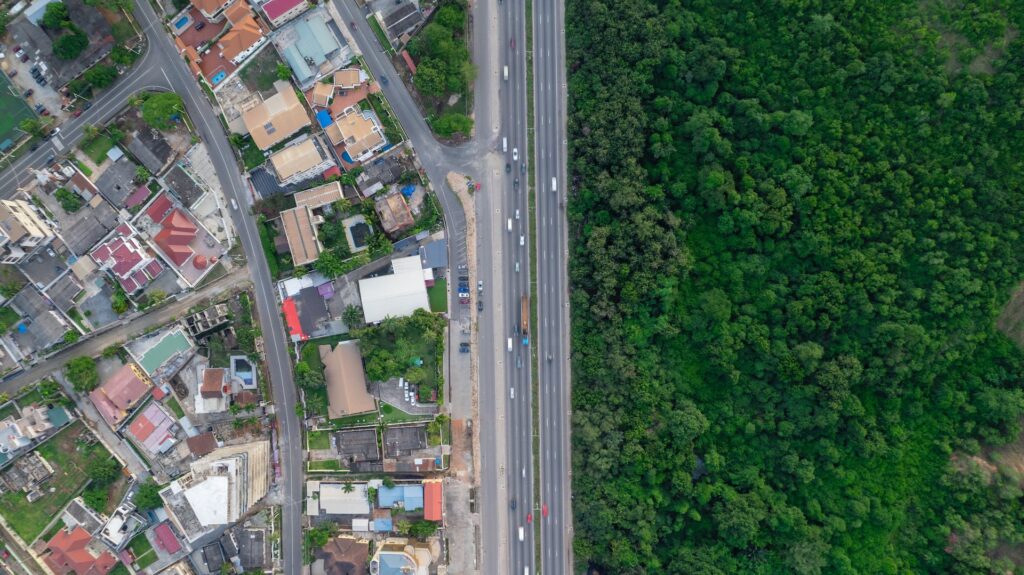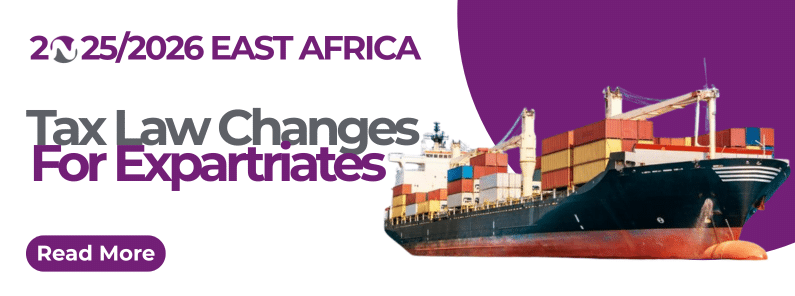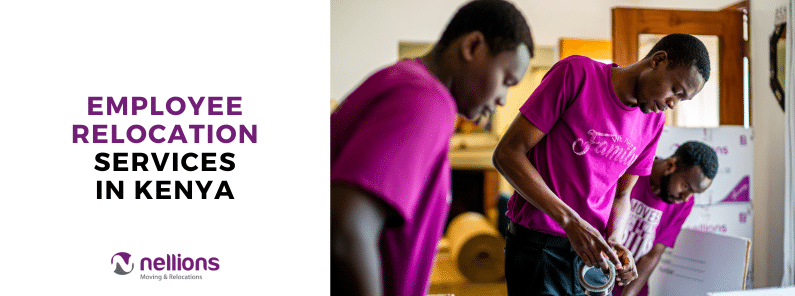Moving from Kenya to Ghana is an exciting cross-continental adventure. Despite the geographical distance, these nations share a common post-colonial legacy and a spirit of resilience and growth.
If you’re making the move to Ghana from Kenya, it may seem like an insurmountable task. But fret not; we prepared this guide just for you, laying out the most important things you need to know about the process of moving from Kenya to Ghana, highlighting the harmonies and unique experiences each country offers.
Geographical and Historical Overview

Kenya and Ghana, two jewels of Africa, each boast a rich tapestry of history and geography that has shaped their unique identities.
Kenya, located in East Africa, is famed for its scenic landscapes that range from the Great Rift Valley to the snow-capped peaks of Mount Kenya and the expansive savannahs teeming with wildlife. Historically, Kenya has been a melting pot of cultures and peoples, from the early Swahili city-states along its coast to the diverse ethnic groups that call it home today.
Ghana, on the West African coast, is known for its lush forests, diverse wildlife, and Atlantic beaches. Historically, it was one of the first African countries to gain independence from colonial rule in 1957. Ghana’s history is deeply intertwined with the story of the transatlantic slave trade, with forts and castles along its coast serving as poignant reminders of this era.
Cultural Similarities and Differences Between Kenya and Ghana
Kenya and Ghana share several cultural similarities, such as a strong sense of community, vibrant traditional ceremonies, and a rich oral storytelling tradition. Both countries have diverse ethnic groups: Kenya has at least 42 tribes, while Ghana boasts around 100, each with its own unique customs and language. However, while Kenya’s official languages are Swahili and English, Ghana primarily uses English, with Akan languages also widely spoken.
In terms of cuisine, both countries enjoy a rich variety of dishes often centred around staples like maize in Kenya and yams in Ghana. Kenyan cuisine is known for dishes like Ugali and Nyama Choma, while Ghanaian cuisine features Jollof rice, Fufu, Kenkey, and Yam dishes.
Economic Ties and Trade Relations
Economically, Kenya and Ghana have been working to strengthen their ties, with both being members of the African Continental Free Trade Area (AfCFTA). This agreement aims to create a single market for goods and services, facilitating trade and economic cooperation. While direct trade between the two countries is still developing, there is potential for growth in sectors like agriculture, technology, and manufacturing.
9 Things You Should Know about Moving to Ghana from Kenya

1. Your Shipment Must Adhere to International Import and Export Processes
Because you’ll be making a move that spans borders when you relocate your household from Kenya to Ghana, you must be ready to adhere to the import and export processes that have been put in place by both countries.
Kenya’s Export Regulations
Exporting goods from Kenya requires adherence to specific procedures and regulations laid out by Kenyan customs law. Your KRA PIN will play a prominent role in this process. Your goods must be declared to Kenyan customs, and necessary documents like packing lists, and export permits (for certain goods) must be provided.
Kenya also has regulations to protect its natural heritage, which includes restrictions on the export of certain wildlife products.
Ghana’s Import Regulations
Ghana’s import process involves several steps to ensure compliance with local laws. Before your shipment enters the country, you must register with the Ghana Revenue Authority (GRA) and obtain a Tax Identification Number (TIN). Goods must be declared upon arrival, and you must provide documents such as the bill of lading, your packing list, and a certificate of origin.
2. Tax Registration & Identification in Ghana
Tax Identification Number (TIN) in Ghana
Obtaining a Tax Identification Number (TIN) in Ghana is crucial for both residents and expatriates. It serves as a unique identifier for individuals and entities in their interactions with the Ghana Revenue Authority (GRA). This includes filing taxes, clearing goods at customs, and conducting other financial transactions.
For expatriates, having a TIN is essential for legal employment and business operations within Ghana. For a smooth relocation process, you need to apply for your TIN before your goods arrive in Ghana.
Ghana TIN Registration Process
To register for a TIN in Ghana, individuals and businesses must:
- Complete the TIN registration form, available online on the GRA website or at any GRA office.
- Provide necessary documentation, including a valid ID such as a passport.
- Submit the form and documents to the nearest GRA office or online.
- The GRA processes the application, and the TIN is issued. This process is typically free of charge.
3. Transport of your Goods to Ghana
Preferred Shipping Routes from Kenya to Ghana
The most common shipping routes from Kenya to Ghana typically involve sea freight, with goods shipped from the Port of Mombasa in Kenya to either Tema or Takoradi Port in Ghana. Air freight is an alternative, though more costly, option for faster transport.
Transit Time and Logistics
Sea freight from Kenya to Ghana can take approximately 60 days, depending on the shipping line and route.
Air freight significantly reduces transit time to a few days but is more expensive.
Logistics considerations that may affect the transit include the choice of shipper, cost, transit time, and the nature of goods being transported.
Factors Affecting Transit Time
Several external factors can influence the duration of the move:
- Weather Conditions: Severe weather, either in Kenya or en route to Ghana, can delay shipping schedules.
- Port Delays: Congestion at ports, either in Kenya or Ghana, can cause significant delays in the unloading and customs clearance of goods. The efficiency of customs clearance processes in both Kenya and Ghana can also impact the timeframe.
- Logistical Challenges: Road conditions, transportation strikes, or other logistical issues in either country can affect the speed of the move.
4. Customs Clearance in Ghana
Cargo clearance in Ghana usually takes place at international airports or seaports.
Ghana has two major seaports, namely:
- Tema Port – Situated in Tema in the East of Accra, Tema is the largest and most equipped port in Ghana, handling the majority of imports and exports. It is also one of the busiest ports in the West African coast.
- Takoradi Port – located in the city of Sekondi-Takoradi, the capital of the Western Region of Ghana, Takoradi is the oldest port in the country, and it plays a significant role in the country’s economy, particularly for mining and oil-related shipments as well as the export of commodities.
Customs Clearance Process in Ghana
- Upon arrival of goods, a customs declaration must be filed, detailing the nature, quantity, and value of the goods.
- Payment of necessary customs duties and taxes based on the assessed value of the goods.
- The goods are then inspected by customs officials to ensure the accuracy of the declaration and compliance with Ghanaian regulations.
- Once cleared, goods can be released to the importer or their agent.
Customs Documentation for Moving Household Goods into Ghana
- Bill of Lading or Air Waybill: The transport document detailing the move.
- Packing List: Detailed list of all items being shipped.
- Valued Inventory: A list of items with their declared value for customs purposes.
- Import Declaration Form: Required for customs clearance in Ghana.
- Tax Exemption Certificate: If applicable, as per the tax-free importation conditions.
- Proof of Residence or Work Permit: To validate eligibility for importing personal and household goods.
PRO TIP: Ensure all documents are accurate and consistent to avoid delays in customs and heft demurrage fees.
5. Physical Verification of Your Goods in Ghana
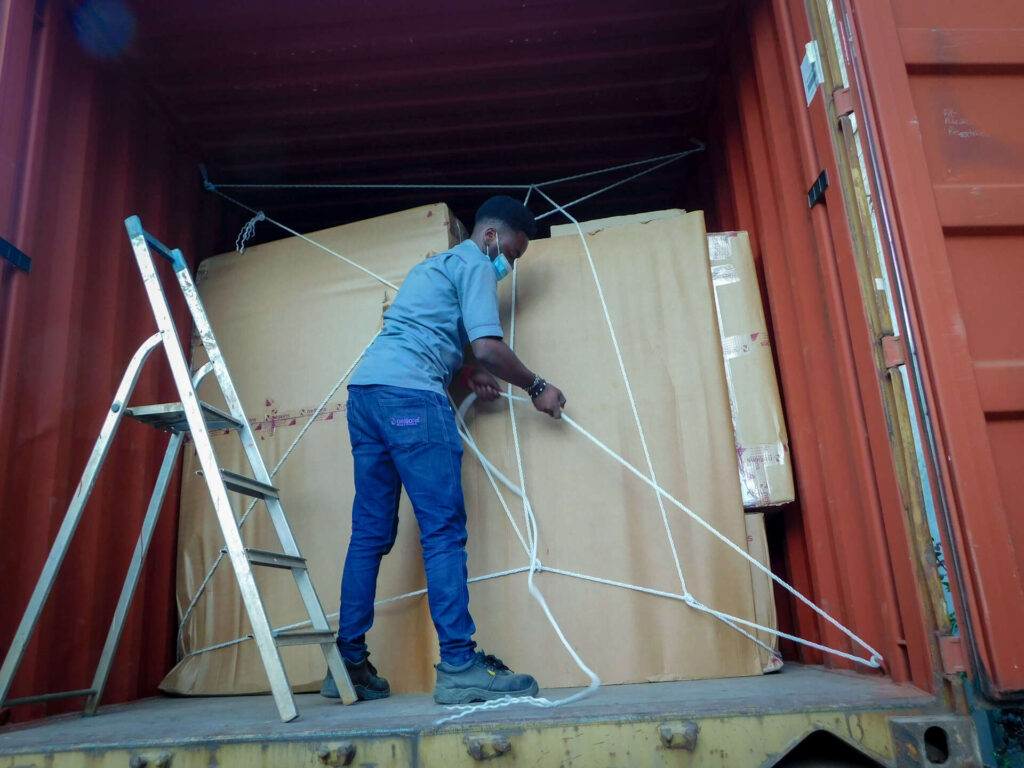
The primary reason for physical verification is to ensure that the imported goods comply with Ghana’s import regulations. This includes checking for prohibited items and verifying that the goods match the description and value declared on the shipping documents.
Verification helps customs officials confirm that the documentation, such as the packing list and invoice, accurately reflects the goods being imported. This is crucial for assessing duties and taxes correctly.
Physical verification also serves to ensure that no illegal or hazardous materials are being brought into the country, thereby maintaining security and safety standards.
How Verification is Done
Physical verification is typically done by customs officials at the port of entry. The officials will inspect a sample of the goods in the consignment to ensure they match the documentation provided.
In some cases, this may involve unpacking the container or shipment to examine individual items. After inspection, the goods are repacked for delivery.
For larger shipments, customs may use scanning equipment to inspect the contents without unpacking everything. This method is quicker and less intrusive but is still thorough.
Why Full Physical Verification May Be Required
While the norm globally is for customs to verify a sample of the goods being imported, in some cases, they may opt to conduct a full physical verification, which typically takes longer and requires additional labour in handling the goods.
Here are some reasons why customs may opt to conduct a full physical verification of your goods:
- Discrepancies in Documentation: If there are discrepancies between the goods and the provided documentation, a full verification may be required. This includes mismatches in quantities, descriptions, or declared values.
- Random Checks: Customs authorities sometimes conduct random full verifications as part of their routine security and compliance procedures.
- High-Risk Shipments: Shipments that are deemed high-risk, either due to the nature of the goods, the country of origin, or inconsistencies in documentation, may be subjected to full verification.
- Previous Non-Compliance: If the importer has a history of non-compliance with customs regulations, their shipments may be more likely to undergo full verification.
6. Importing Your Used Motor Vehicle from Kenya to Ghana

Personal cars are typically treated as household goods for import purposes into Ghana.
Ghanaian nationals returning to the country after a significant period abroad may be eligible for certain exemptions or concessions on vehicle import taxes. This typically requires proof of long-term residency outside Ghana and ownership of the vehicle for at least 18 months.
Diplomats and certain international aid workers may qualify for tax exemptions on vehicle imports. This usually requires documentation from the relevant embassy or international organization.
In order to be eligible for these tax exemptions, the vehicle must meet some other import regulations:
- Age Limit: Ghana generally restricts the importation of vehicles that are more than 10 years old. This is to ensure environmental and safety standards are met.
- Left-Hand Drive Requirement: Ghana mandates that all vehicles operated on its roads must be left-hand drive. Right-hand drive vehicles are not allowed for road use, aligning with the country’s traffic system.
- Roadworthiness: Vehicles must pass a roadworthiness inspection to be registered and used in Ghana.
7. Tax-Free Importation of Household Goods in Ghana
During the importation of your goods, your consignment will be assessed for tax purposes. Ghanian customs will use your Import Declaration Form in conjunction with your Packing List to determine the effective amount of tax that you need to pay.
New goods will attract a VAT of 12.5% of a similar good’s purchase price in Ghana.
Ghana also allows you to import your household goods tax-free into the country upon meeting the requirements detailed below:
Eligibility Criteria for Tax-Free Imports into Ghana
- Returning Residents: Ghanaians returning home after living abroad for at least a year are eligible for tax-free importation of their household goods.
- Expatriates: Foreign nationals with a valid work permit or residency status in Ghana can also import household goods tax-free.
- Diplomats and International Organizations: Accredited diplomats and members of international organizations often qualify for tax exemptions under specific agreements.
Tax-Exempt Items in Ghana
- Personal effects and household goods, generally used, such as furniture, appliances, and clothing.
- One each of the major electrical home appliances (e.g., refrigerator, washing machine).
- Personal computers, laptops, and related equipment.
- Books, CDs, and educational materials.
- Tools and instruments necessary for the profession of the person importing.
Procedure for Claiming Tax Exemption in Ghana
- Inventory Preparation: Prepare a detailed inventory list of all items to be imported, clearly indicating that they are used goods.
- Application Submission: Submit an application for tax exemption to the Ghana Revenue Authority (GRA), along with the inventory list.
- Verification by GRA: The GRA will review the application and may inspect the goods upon arrival.
- Approval and Exemption: If approved, the GRA will issue a tax exemption certificate, allowing the importation of the goods without import duties.
Your Ghanaian clearing Agent will help you with the process of claiming tax exemption.
8. Living in Ghana: Adapting to a New Environment
Healthcare in Ghana
Ghana’s healthcare system comprises both public and private facilities. Expatriates often prefer private healthcare for its higher quality of service. It’s advisable to secure comprehensive health insurance that covers medical services in Ghana, as this can significantly reduce out-of-pocket expenses for medical treatments.
Housing Options
The housing market in Ghana offers a range of options, from apartments to standalone houses. Popular expatriate neighborhoods in cities like Accra include East Legon, Airport Residential Area, and Cantonments. These areas are known for their security, amenities, and proximity to international schools and business centers.
Schooling in Ghana
Ghana’s education system includes public, private, and international schools. International schools are a popular choice for expatriates due to their diverse curricula and English language instruction. Notable international schools include the Lincoln Community School and the Ghana International School.
Cultural Adaptation
Adapting to Ghanaian culture involves understanding and respecting local customs and social norms. Ghanaians are known for their hospitality and friendliness. Learning a few phrases in local languages, such as Twi or Ga, can be beneficial in building rapport with locals.
9. Trust Nellions for a Smooth Relocation Journey to Ghana
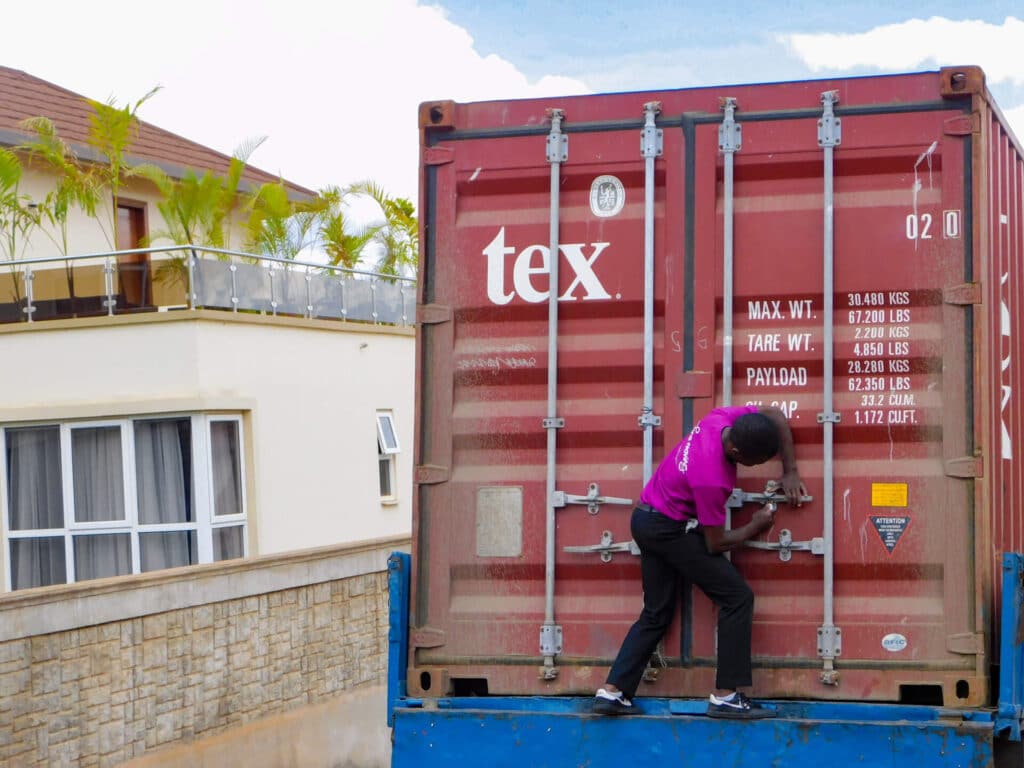
Selecting a moving company with international relocation experience is crucial. Such companies are familiar with the complexities of international shipping, customs regulations, and logistical challenges across borders.
Nellions Moving & Relocations stands out for its expertise in international relocations from Kenya using our reliable destination partners in Ghana. With services tailored to ensure a smooth transition, you can enjoy comprehensive solutions that cover packing, shipping, customs clearance, and even setting up your new home in Ghana. The understanding of both Kenyan and Ghanaian logistics, combined with a professional approach, makes them an ideal choice for a hassle-free move.






